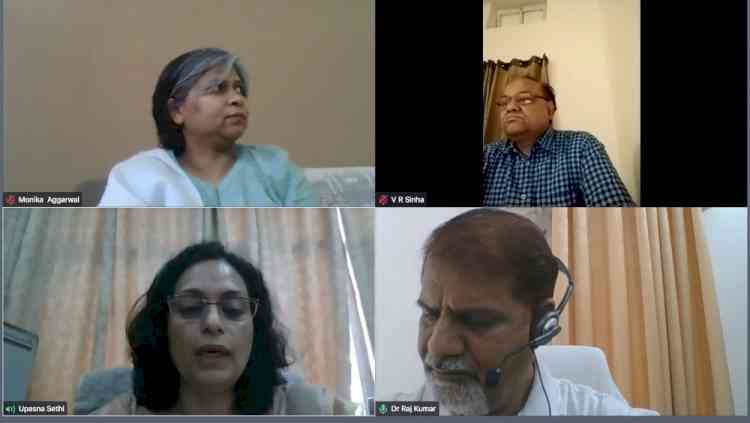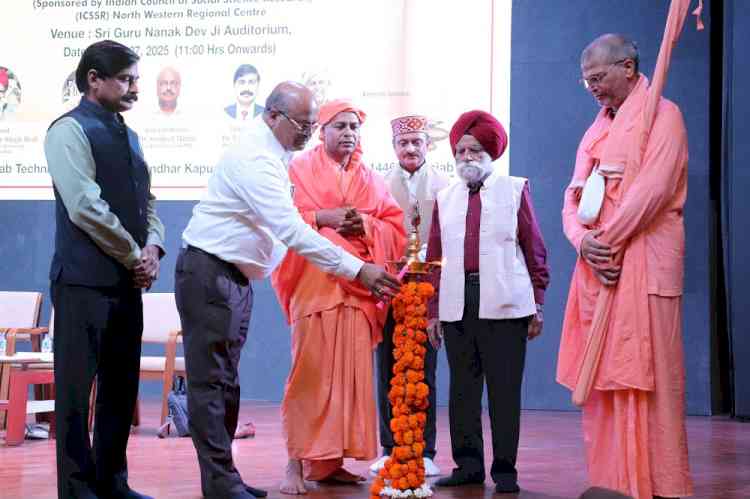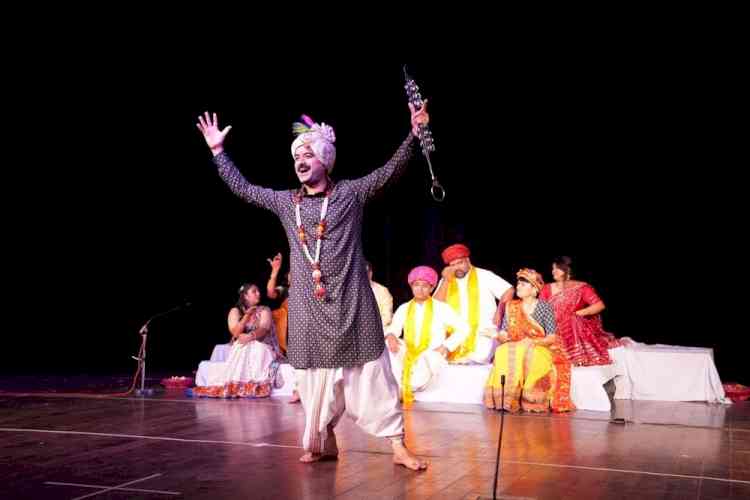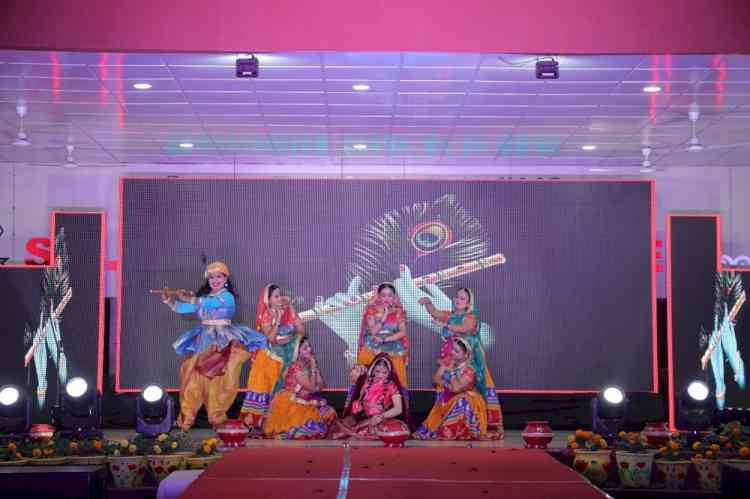Weeklong e-workshop on research commences at UIAMS
The workshop is being coordinated by Prof Sanjeev Sharma, Dr Monika Aggarwal and Dr Rachita Sambyal

Chandigarh: University Institute of Applied Management Sciences, Panjab University, Chandigarh organized a one week National e-workshop on Emerging Dimensions of Qualitative Research from 8 -13, 2020 which was inaugurated by Prof. Raj Kumar, Vice Chnacellor, Panjab University. A human mind works on the two important methods of operations that our subconscious mind and the other one is based on more facts and figures, he added. According to PU VC, in-depth knowledge of human behavior, opinion, or attitude relating to individuals or a group through methods such as focus groups, individual in-depth interviews, and observation are as important as the numerical analysis. Qualitative research methods can be used in any discipline to obtain data on the social and psychological aspects. He appreciated that UIAMS has planned this workshop in line with its interdisciplinary approach of its teaching and research.
Prof V R Sinha, Dean Research opined that research has to be an ongoing activity as it contributes to development of not only the subject, but society as well. Growth in any discipline depends upon cross-fertilisation of idea, followed by confirmation or denial. Continuous research fills a vital and important role in society: it is the means by which discoveries are made, ideas are confirmed or refuted, events controlled or predicted and theory developed or refined. All of these functions contribute to the development of knowledge. He suggested that contemporary research mandates learning qualitative tools and techniques but also embed technology so that cross-fertilisation can occur.
Prof Upasna Joshi Sethi, Director, UIAMS welcomed all the participants and outlined broad themes to be covered in the workshop. Some of the aspects to be covered include undertaking a systematic review of literature in social sciences, Comprehending alternative qualitative study designs and research methods. In addition, Data collection techniques in social sciences, Participatory action research: Case Study development and analysis, Cross cultural aspects of social science research will also be covered. Application of Anti-plagiarism software and Publishing and presenting qualitative research findings for high impact as well as Preparing Research proposals and scouting for research funding will be the special features. According to her, in-depth knowledge of human behavior, opinion, or attitude relating to individuals or a group through methods such as focus groups, individual in-depth interviews, and observation are as important as the numerical analysis. Qualitative research methods can be used in any discipline to obtain data on the social and psychological aspects.
The workshop is being attended by around 200 faculty from diverse social science disciplines from all over the country. Prominent speakers include Prof A S Chawla, VC, RIMT University; Prof Kulbhushan Chandel, Dean, Academic, HPTU, Hamirpur ; Prof Rahul Gupta, Director, Jammu University; Prof Cynthia, Bangalore University and Prof Anmil Mehta, Bansathali University.
The workshop is being coordinated by Prof Sanjeev Sharma, Dr Monika Aggarwal and Dr Rachita Sambyal.


 cityairnews
cityairnews 








